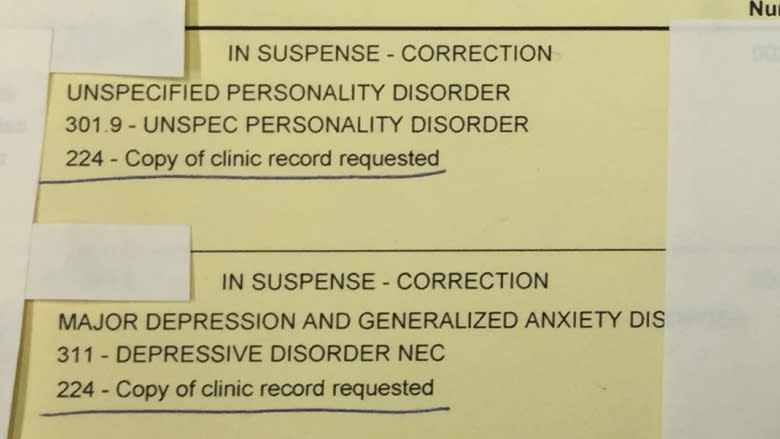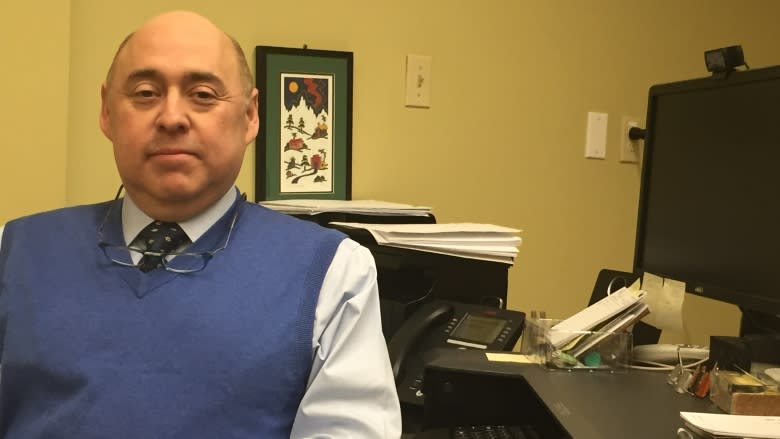Yukon gov't denies asking doctors for sensitive medical files
The Yukon government is denying that its insured health billing department routinely asks for full patient files in order to verify doctors' billings.
A Whitehorse psychiatrist and several other doctors, including the president of the Yukon Medical Association, have said the government often asks for medical charts. The doctors say they sometimes refuse because the information is sensitive, and so forfeit payment.
Shauna Demers, director of Insured Health Services with the Yukon government, says that's not true.
"We do not and never have asked for complete files. Insured health services does not request and has never received a complete medical file to adjudicate a claim.
"When we request information to validate or verify a claim, we don't necessarily need a treatment or diagnosis, what we're looking to confirm is that the service billed is valid and appropriate for what they've claimed."
Health Information act
Demers's statement directly contradicts what several doctors have told CBC News, including the president of the Yukon Medical Association.
Dr. Alison Freeman says under Yukon's Health Information Privacy and Management Act, the government "could request the consult, the notes from the chart...very delicate, sensitive information. I just feel that there's certain information that shouldn't be shared."
Demers says under the new Health Information Privacy and Management Act, the government protects patient information.
"As far as patients go, they have the opportunity and we would encourage them to reach out to us; we collect logs about who's accessing what, how the information is stored, what's on record at Insured Health."
Suspended claim reports
Dr. Armando Heredia, a Whitehorse psychiatrist, says the government has asked for "complete psychotherapy charts." Heredia says he has refused to hand over the charts because it would violate patient confidentiality and be unethical.
Demers would not comment further, saying the issue is currently being investigated by the Yukon Privacy Commissioner. However, Heredia says he has received more than 200 outstanding "yellow sheets," officially called a "suspended claim report."
In fact, Heredia told the CBC News he received two more yellow sheets on Wednesday. In one of the sheets, the government was requesting a copy of the patient's full psychotherapy session.
On the same sheet, the government is requesting copies of the clinic records for the same patient's "diagnostic interviews or examination, including history, mental status and treatment recommendation, with written report."
Doctor cites 'those dreaded yellow sheets' as a reason for leaving Yukon
Heredia's revelations have prompted other doctors to register their concerns. One doctor, who works on contract, sent Heredia an email, saying they were "troubled with having to send in the patient encounters with the yellow sheets since I began practice here."
This doctor says they were simply "not using the billing codes that typically generate yellow sheets...I suppose that skews our stats....but it certainly limits those dreaded yellow sheets and the requests to send patients' information to completely unknown individuals in the government."
The doctor adds that they are leaving the Yukon to work in a different Canadian jurisdiction.
"One reason is that there are no 'yellow sheets' and no requests for patient encounter notes."
Disclosures could deter patients from seeking mental health care
CBC News has received calls from several of Heredia's patients, who are adamant they do not want their personal medical information shared.
One patient worries that Heredia's practice will close, leaving them without mental health care. The patient says they have developed a trust over four years, and knowing that government asks for psychotherapy charts may dissuade other people from seeking badly needed psychiatric care.
"It can take years for people to work up the courage to go seek treatment for something, it's a very difficult thing to do. They battle that," the patient said.
"And then you add this on top of that, you're going to have people that are not going to seek treatment that should be. It's so hard to do in the first place, and now there's a trust issue."
NDP health critic Kate White says the patient should be made aware when and if their personal medical information is shared.
"The idea that a bureaucrat or a public servant who doesn't have the expertise can be looking at such personal information is definitely off-putting," she said.
"I think we just have to look across the country to find examples of jurisdictions who don't do it in this way, so there must be a better system out there."



